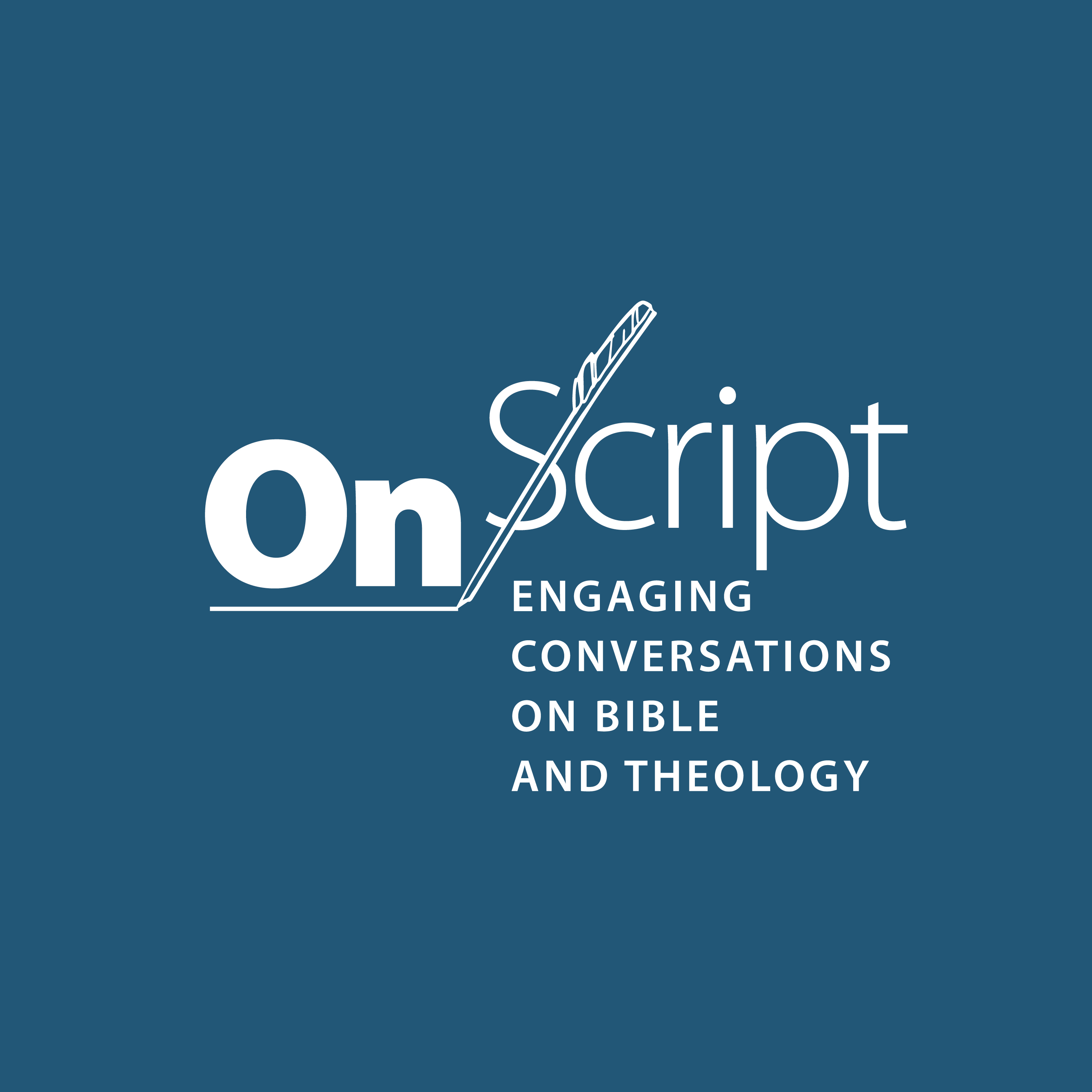Episodes
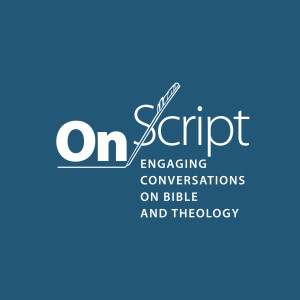
Wednesday Aug 18, 2021
Sameer Yadav - Theology, Race, and the Mystical Tradition
Wednesday Aug 18, 2021
Wednesday Aug 18, 2021
 Episode: In this wide-ranging episode Amy Brown Hughes talks with Sameer Yadav about the 'promiscuous' nature of theology, his book The Problem of Perception and the Experience of God: Toward a Theological Empiricism, his recent work on apophaticism in the Christian mystical tradition, and race in the philosophy of religion. Enjoy this re-released episode!
Episode: In this wide-ranging episode Amy Brown Hughes talks with Sameer Yadav about the 'promiscuous' nature of theology, his book The Problem of Perception and the Experience of God: Toward a Theological Empiricism, his recent work on apophaticism in the Christian mystical tradition, and race in the philosophy of religion. Enjoy this re-released episode!
Guest: Sameer Yadav is Associate Professor of Religious Studies at Westmont. He graduated from Boise State University with a bachelor degree in philosophy, earned a Master of Divinity at Master’s Seminary, a Master of Sacred Theology at Yale Divinity School, and a doctorate in theology and ethics at Duke Divinity School, with a primary concentration in systematic and philosophical theology and minor concentrations in moral theology and Old Testament/Hebrew Bible. He is the author of The Problem of Perception and the Experience of God (Fortress Press, 2015), and has published in various journals including The Journal of Analytic Theology, Journal of Religion, Faith and Philosophy and Pro Ecclesia. He's a member in American Academy of Religion, Society of Christian Philosophers, Society of Christian Ethics, and Society of Scriptural Reasoning. (drawn from the Westmont website)
Give: Visit our Donate Page if you want to join the big leagues and become a regular donor.

Wednesday Aug 11, 2021
Bruce Hindmarsh - The Spirit of Evangelicalism
Wednesday Aug 11, 2021
Wednesday Aug 11, 2021
 Episode: This episode is designed to help Evangelicals, especially North American Evangelicals, to get out of their own heads. Bruce Hindmarsh traces the contours of early Evangelicalism as it emerged in Britain and America, and discusses how that historical perspective on Evangelicalism's "spirit" can help shape our interpretation of this present moment.
Episode: This episode is designed to help Evangelicals, especially North American Evangelicals, to get out of their own heads. Bruce Hindmarsh traces the contours of early Evangelicalism as it emerged in Britain and America, and discusses how that historical perspective on Evangelicalism's "spirit" can help shape our interpretation of this present moment.
Guest: Dr. Bruce Hindmarsh is the James M. Houston Professor of Spiritual Theology and Professor of the History of Christianity at Regent College, Vancouver. He completed his D. Phil from Oxford in 1993. He's the author of major books: John Newton and the English Evangelical Tradition (Oxford University Press, 1996), The Evangelical Conversion Narrative (Oxford University Press, 2005), and The Spirit of Early Evangelicalism (Oxford University Press, 2018). Bruce has been the recipient of numerous teaching awards, research grants and fellowships. He has also been a Mayers Research Fellow at the Huntington Library and a holder of the Henry Luce III Theological Fellowship. Bruce is a fellow of the Royal Historical Society and a past-president of the American Society of Church History.
Give: Help support OnScript as we grow and develop. Click HERE.

Wednesday Aug 04, 2021
Philip Ziegler - Militant Grace
Wednesday Aug 04, 2021
Wednesday Aug 04, 2021
 Episode: Philip Ziegler joins Erin Heim to discuss apocalyptic theology, Pauline literature, and the implications of both for Christian discipleship. They discuss Ziegler's new book, Militant Grace, which constitutes a serious theological engagement and response to the apocalyptic turn in Pauline studies. Along the way, Professor Ziegler shares with us the influence friends and mentors like J. Louis Martyn have had on him both personally and professionally. This is a rebroadcast of an episode originally published in Oct 2019.
Episode: Philip Ziegler joins Erin Heim to discuss apocalyptic theology, Pauline literature, and the implications of both for Christian discipleship. They discuss Ziegler's new book, Militant Grace, which constitutes a serious theological engagement and response to the apocalyptic turn in Pauline studies. Along the way, Professor Ziegler shares with us the influence friends and mentors like J. Louis Martyn have had on him both personally and professionally. This is a rebroadcast of an episode originally published in Oct 2019.

Book: Militant Grace (Baker, 2018) (from the publisher's website):This clear and comprehensive introduction to apocalyptic theology demonstrates the significance of apocalyptic readings of the New Testament for systematic theology and highlights the ethical implications of the apocalyptic turn in biblical and theological studies. Written by a leading theologian and proponent of apocalyptic theology, this primer explores the impact of important recent Pauline scholarship on contemporary theology and argues for a renewed understanding of key Christian doctrines, including sin, grace, revelation, redemption, and the Christian life.
Give: Help support OnScript as we grow and develop. Click HERE.
If you like this: Check out our interview with Fred Sanders on his book The Triune God.

Wednesday Jul 28, 2021
Beth Felker Jones - Practicing Christian Doctrine
Wednesday Jul 28, 2021
Wednesday Jul 28, 2021
 Episode: For some of us the descriptor "systematic theology" evokes a sense of overwhelm or perhaps even carries negative connotations. Friends, it doesn't have to be this way! In this episode co-host Amy Hughes talks with Beth Felker Jones, professor of theology at Northern Seminary in Illinois about her book Practicing Christian Doctrine: An Introduction to Thinking and Living Theologically (Baker Academic, 2014) and gets a sneak peek at her upcoming work on a theology of conversion.
Episode: For some of us the descriptor "systematic theology" evokes a sense of overwhelm or perhaps even carries negative connotations. Friends, it doesn't have to be this way! In this episode co-host Amy Hughes talks with Beth Felker Jones, professor of theology at Northern Seminary in Illinois about her book Practicing Christian Doctrine: An Introduction to Thinking and Living Theologically (Baker Academic, 2014) and gets a sneak peek at her upcoming work on a theology of conversion.

Give: Help support OnScript as we grow and develop. Click HERE.
OnScript was voted one of the top 20 theology podcasts! https://blog.feedspot.com/theology_podcasts/
Did you know? OnScript has another podcast called Biblical World, which focuses on the history, cultures, archaeology, and geography of the Bible. Check it out HERE.

Wednesday Jul 21, 2021
Lies My Preacher Told Me - Brent Strawn
Wednesday Jul 21, 2021
Wednesday Jul 21, 2021
 Episode: Brent Strawn is back for the 3rd time to discuss his new book on mistruths about the Old Testament. Discussion covers everything from divine violence and wrath, to the Old Testament's supposed irrelevance, some reflections on his colleagues, Dr. Ervine Sheblazm as a mentor, and much more. Enjoy this wide-ranging conversation related to his book Lies My Preacher Told Me: An Honest Look at the Old Testament (WJK Press 2021).
Episode: Brent Strawn is back for the 3rd time to discuss his new book on mistruths about the Old Testament. Discussion covers everything from divine violence and wrath, to the Old Testament's supposed irrelevance, some reflections on his colleagues, Dr. Ervine Sheblazm as a mentor, and much more. Enjoy this wide-ranging conversation related to his book Lies My Preacher Told Me: An Honest Look at the Old Testament (WJK Press 2021).
Guest: Dr. Brent Strawn is professor of Old Testament and Law at Duke Divinity School. He taught for 18 years at Candler School of Theology at Emory University before joining the Duke faculty in 2019. He’s the author of several books, including The Old Testament Is Dying (Baker Academic, 2017), The Old Testament: A Concise Introduction (Routledge, 2019), and But today we’re talking about Lies My Preacher Told Me: An Honest Look at the Old Testament (WJK Press 2021). His forthcoming book is called Honest to God Preaching: Talking Sin, Suffering, and Violence (Fortress, 2021). 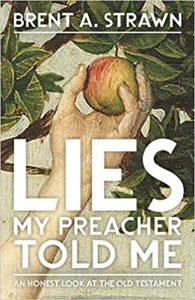
If you enjoyed this episode ... check out our previous episodes with Brent HERE (on how the Bible isn't a story) and HERE (on how the OT is dying).
Give: Help support OnScript as we grow and develop. Click HERE.
OnScript was voted one of the top 20 theology podcasts! https://blog.feedspot.com/theology_podcasts/
Did you know? OnScript has another podcast called Biblical World, which focuses on the history, cultures, archaeology, and geography of the Bible. Check it out HERE.

Tuesday Jul 13, 2021
Brittany Wilson - Divine Embodiment
Tuesday Jul 13, 2021
Tuesday Jul 13, 2021
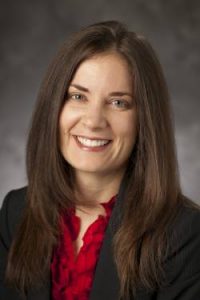 Episode: Does God have a body? Did the New Testament writers think that God has a body? Brittany Wilson says, Yes! Her study of Luke-Acts challenges assumptions that God is inherently invisible and incorporeal, and draws multiple lines of connection between images of an embodied God from the Old Testament and similar images in the New Testament. This wide-ranging and engaging conversation draws from Wilson's groundbreaking new book The Embodied God (OUP, 2021).
Episode: Does God have a body? Did the New Testament writers think that God has a body? Brittany Wilson says, Yes! Her study of Luke-Acts challenges assumptions that God is inherently invisible and incorporeal, and draws multiple lines of connection between images of an embodied God from the Old Testament and similar images in the New Testament. This wide-ranging and engaging conversation draws from Wilson's groundbreaking new book The Embodied God (OUP, 2021).
Guest: Dr. Brittany Wilson is Associate Professor of New Testament at Duke Divinity School. She’s the author of Unmanly Men: Refigurations of Masculinity in Luke-Acts (OUP) which won the Manfred Lautenschlaeger Award for Theological Promise in 2015, and she’s written The Embodied God: Seeing the Divine in Luke-Acts and the Early Church (OUP 2021), discussed in this episode. She’s also working on a larger project that explores divine embodiment across the NT. Wilson serves on editorial boards for the Library of New Testament Studies and the Journal for the Study of the New Testament, and she is the co-chair for the Society of Biblical Literature Gospel of Luke section. She also serves on steering committees for the Society of Biblical Literature Book of Acts section and the Senses, Cultures, and Biblical Worlds section. Wilson has been a Regional Scholar for the Society of Biblical Literature and received a sabbatical grant for researchers from the Louisville Institute in 2016-2017. She is a United Methodist and a John Wesley Fellow. 
Give: Help support OnScript as we grow and develop. Click HERE.
OnScript was voted one of the top 20 theology podcasts! https://blog.feedspot.com/theology_podcasts/

Tuesday Jul 06, 2021
Alister McGrath - Doctrine of Justification
Tuesday Jul 06, 2021
Tuesday Jul 06, 2021
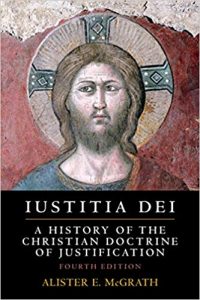 Episode: How has the church's understanding of salvation grown and shifted over time? What are common misunderstandings that Catholics and Protestants have about salvation? How has this impacted the church? And what is the future of justification as that connects to ecumenical efforts? Eminent church historian Alister McGrath (University of Oxford) has been research and writing about the history of salvation in the church for over 40 years. In light of his freshly revised monograph, Iustitia Dei, McGrath leads us on a tour of the history of the Christian doctrine. Co-hosted by Matthew W. Bates.
Episode: How has the church's understanding of salvation grown and shifted over time? What are common misunderstandings that Catholics and Protestants have about salvation? How has this impacted the church? And what is the future of justification as that connects to ecumenical efforts? Eminent church historian Alister McGrath (University of Oxford) has been research and writing about the history of salvation in the church for over 40 years. In light of his freshly revised monograph, Iustitia Dei, McGrath leads us on a tour of the history of the Christian doctrine. Co-hosted by Matthew W. Bates.
The Book: Alister McGrath, Iustitia Dei: A History of the Christian Doctrine of Justification (4th ed.; Cambridge: Cambridge University Press, 2020). The Christian doctrine of justification is of immense interest to historians and theologians ,and continues to be of major importance in modern ecumenical discussions. The present work appeared in its first edition in 1986, and rapidly became the leading reference work on the subject. Its many acclaimed features include a detailed assessment of the semantic background of the concept in the Ancient Near East, a thorough examination of the doctrine of the medieval period, and an especially careful analysis of its development during the critical years of the sixteenth century. The substantially rewritten fourth edition thoroughly updates the work, responding to the latest developments in scholarly literature and user feedback. It will remain an essential resource for all concerned with the development of Christian doctrine, the history of the Reformation debates on the identity of Christianity, and modern discussions between Protestants and Roman Catholics over the nature of salvation. (Publisher’s description).
 Guest: Alister McGrath is the Andreas Idreos Professor of Science and Religion at the University of Oxford; Director of the Ian Ramsey Centre for Science and Religion; Fellow of Harris Manchester College. He is the author of many books, including Narrative Apologetics (2019); Inventing the Universe (2015); Deep Magic, Dragons and Talking Mice (2015); C. S. Lewis: A Life (2013); Luther's Theology of the Cross (1985); and The Intellectual Origins of the European Reformation (1987).
Guest: Alister McGrath is the Andreas Idreos Professor of Science and Religion at the University of Oxford; Director of the Ian Ramsey Centre for Science and Religion; Fellow of Harris Manchester College. He is the author of many books, including Narrative Apologetics (2019); Inventing the Universe (2015); Deep Magic, Dragons and Talking Mice (2015); C. S. Lewis: A Life (2013); Luther's Theology of the Cross (1985); and The Intellectual Origins of the European Reformation (1987).
OnScript's Review: Alister McGrath's field-defining treatment of the history of the doctrine of justification, Iustitia Dei, has been extensively rewritten, enriched, and brought up to date in this 4th edition. It remains the single best resource for accurately understanding how Christian salvation has been conceptualized down through the ages. It is difficult to imagine it ever being surpassed. -- Matthew W. Bates, author of Salvation by Allegiance Alone; associate professor of theology, Quincy University
Give: Help support OnScript as we grow and develop. Click HERE.
OnScript was voted one of the top 20 theology podcasts! https://blog.feedspot.com/theology_podcasts/

Tuesday Jun 29, 2021
Leopoldo Sánchez - Sculptor Spirit
Tuesday Jun 29, 2021
Tuesday Jun 29, 2021
 Episode: In this episode we talk with Dr. Leopoldo A. Sánchez M. He is the Werner R.H. and Elizabeth R. Krause Professor of Hispanic Ministries at Concordia Seminary, St. Louis, where he serves as professor of systematic theology and director of the Center for Hispanic Studies. His newest book is Sculptor Spirit: Models of Sanctification from Spirit Christology (IVP, 2019). In our conversation, we delve into his proposal for how a Spirit Christology can inform different models of sanctification (The Renewal, Dramatic, Sacrificial, Hospitality, Devotional models) and assist church leaders in their spiritual formation and missional praxis.
Episode: In this episode we talk with Dr. Leopoldo A. Sánchez M. He is the Werner R.H. and Elizabeth R. Krause Professor of Hispanic Ministries at Concordia Seminary, St. Louis, where he serves as professor of systematic theology and director of the Center for Hispanic Studies. His newest book is Sculptor Spirit: Models of Sanctification from Spirit Christology (IVP, 2019). In our conversation, we delve into his proposal for how a Spirit Christology can inform different models of sanctification (The Renewal, Dramatic, Sacrificial, Hospitality, Devotional models) and assist church leaders in their spiritual formation and missional praxis.
Guest: Leopoldo A. Sánchez M. (PhD, Concordia Seminary) is the Werner R. H. and Elizabeth R. Krause Professor of Hispanic Ministries at Concordia Seminary in St. Louis. Sánchez's published work includes Receiver, Bearer, and Giver of God’s Spirit; Immigrant Neighbors Among Us: Immigration Across Theological Traditions, which he co-edited with M. Daniel Carroll R.; Teología de la santificación; and Pneumatología, Sculptor Spirit: Models of Sanctification from Spirit Christology(IVP 2019), and T&T Clark Introduction to Spirit Christology (T&T Clark, 2021). (adapted from the IVP site)
Give: Help support OnScript as we grow and develop. Click HERE.

Tuesday Jun 22, 2021
Special Announcement!
Tuesday Jun 22, 2021
Tuesday Jun 22, 2021
 OnScript is pleased to announce that we have a new theology co-host. Please welcome Jules Martínez-Olivieri to the podcast!
OnScript is pleased to announce that we have a new theology co-host. Please welcome Jules Martínez-Olivieri to the podcast!
Jules will start this fall as Milton B. Engebretson Chair in Evangelism and Justice at North Park Theological Seminary in Chicago. Most recently he has served as Associate Professor of Theology and Director of the Masters in Theological Studies at Trinity International University in Florida. Dr. Martinez’s research interests range from Christology, trinitarian theology, political theologies, and missional theology. His first book, A Visible Witness: Christology, Liberation and Participation (Minneapolis, MN: Fortress Press, 2016), is available in English and Spanish (Publicaciones Kerygma). As a professor, Dr. Martínez has a rich and diverse teaching background, having taught at seminaries in Puerto Rico, Bolivia, Guatemala, Perú, and the United States. As an ordained minister, his broad pastoral experience includes serving as a pastor in Latino/a churches in Illinois and church planter in Puerto Rico. It was these very commitments which, in the aftermath of hurricanes Irma and María in 2017, led him to co-found The Christ Collaborative, an interdenominational initiative focused on disaster relief and community development. He lives in Miami with his family.
It was these very commitments which, in the aftermath of hurricanes Irma and María in 2017, led him to co-found The Christ Collaborative, an interdenominational initiative focused on disaster relief and community development. He lives in Miami with his family.

Tuesday Jun 15, 2021
Dominick Hernández - Pathways to Wisdom
Tuesday Jun 15, 2021
Tuesday Jun 15, 2021
 Episode: Proverbs is one of the most misunderstood books in the Old Testament. It's often treated as a self-help guide or as a collection of promises. Dominick Hernández challenges us to understand the literary qualities of Proverbs, as well as its function within the biblical canon. The episode also talks about some of the personal experiences that shape Hernández's reading of Proverbs. The episode also focuses on the culminating significance of the "warrior woman," or "woman of valor" in Proverbs 31, and other insights from his recent book Proverbs: Pathways to Wisdom (Abingdon, 2021).
Episode: Proverbs is one of the most misunderstood books in the Old Testament. It's often treated as a self-help guide or as a collection of promises. Dominick Hernández challenges us to understand the literary qualities of Proverbs, as well as its function within the biblical canon. The episode also talks about some of the personal experiences that shape Hernández's reading of Proverbs. The episode also focuses on the culminating significance of the "warrior woman," or "woman of valor" in Proverbs 31, and other insights from his recent book Proverbs: Pathways to Wisdom (Abingdon, 2021).
Guest: Dr. Dominick Hernandez was the Assistant Professor of Old Testament Interpretation at the Southern Baptist Theological Seminary. Since recording the podcast, Dominick has accepted a job as associate professor of Old Testament at Talbot School of Theology, Biola University. He completed his MDiv from Princeton Theological Seminary and PhD in Hebrew Bible at Bar-Illan University in Israel. He’s the author of Illustrated Job in Hebrew (Glossa House) and a book that we’ll discuss today called Proverbs: Pathways to Wisdom (published by Abingdon Press).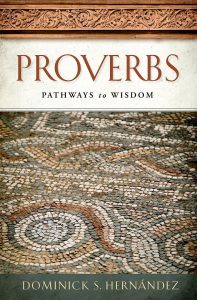
Give: Help support OnScript as we grow and develop. Click HERE.

